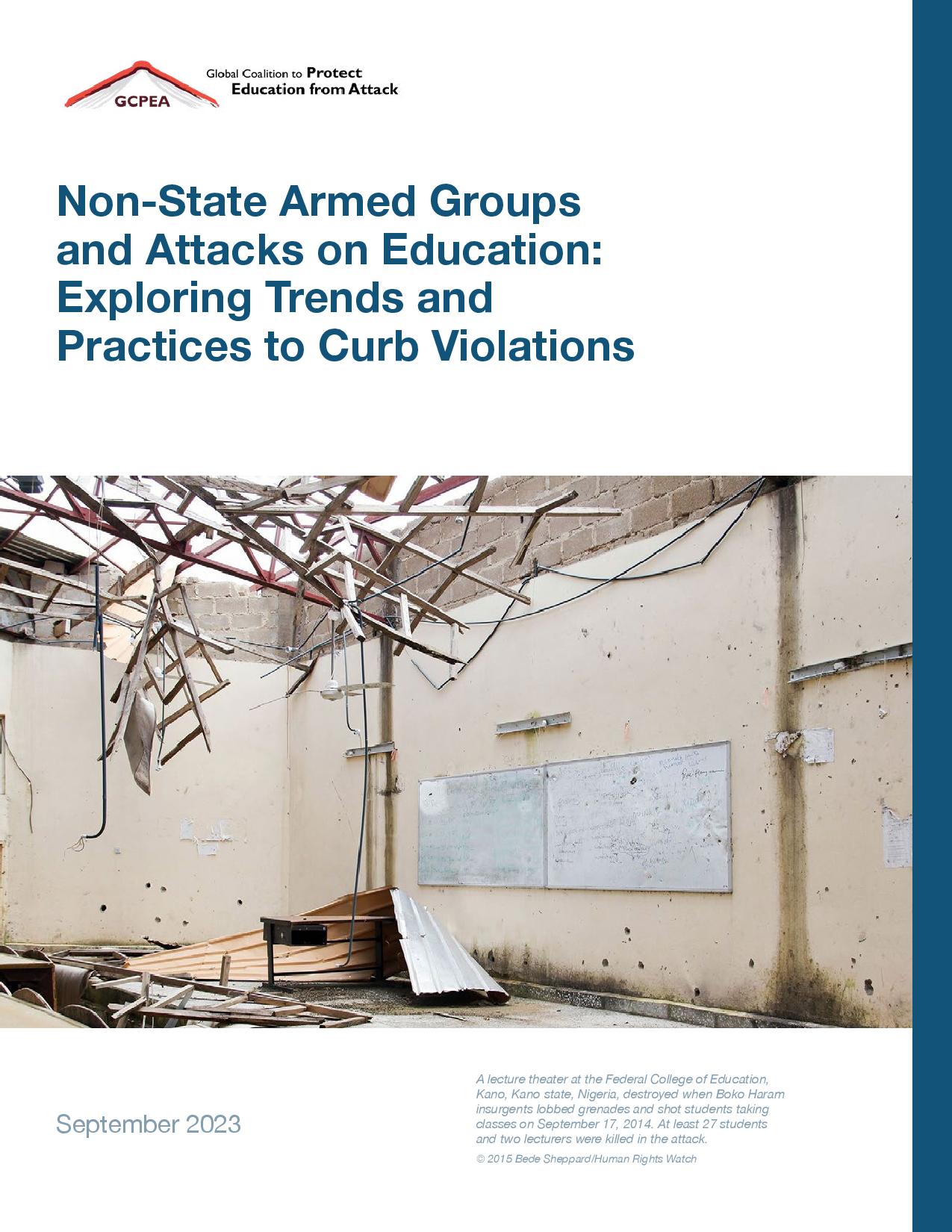GCPEA News
Afghanistan: NATO Should Strengthen Civilian Protection
Human Rights Watch, July 5, 2016
(Brussels) – North Atlantic Treaty Organization (NATO) member countries should endorse concrete measures to improve the protection of civilians in the conflict in Afghanistan, Human Rights Watch said today in a letter to government leaders. The NATO Summit in Warsaw, Poland on July 8 and 9, 2016, will discuss military and other support for the Afghan government as the Taliban and Afghan government forces claim an ever-increasing number of civilian lives.
NATO should press the Afghan government to curtail abuses by its security forces, including the military’s misuse of schools, attacks on healthcare facilities, and recruitment of children. NATO should also appoint a high-level envoy on protection of civilians to provide expert analysis and advice.
“The Warsaw Summit is a crucial opportunity for NATO to commit to a more robust role in reducing Afghan civilian casualties,” said Brad Adams, Asia director. “Despite NATO’s reduced military presence and redefined support mission, the alliance is well situated to make good on its pledges to help protect civilians.”
Over the last decade, millions of Afghan women, men, and children have experienced significant progress in access to health care and education. However, these important but fragile gains are at serious risk. Though the Taliban and other insurgent groups have been responsible for the vast majority of attacks that have caused significant civilian casualties, Afghan government forces are increasingly putting civilians in harm’s way by occupying schools, raiding medical facilities, and recruiting children, while committing these and other abuses with impunity.
These actions imperil the very development goals Afghanistan’s donors and NATO have long pledged to uphold. They undermine the legitimacy of the Afghan government, and fuel support for the insurgents.
A key area in which NATO can make a difference is with respect to the Afghan security forces’ occupation of schools. As security throughout Afghanistan has deteriorated in the past 18 months, schools throughout the country have come under threat, not only from Taliban forces but also from the very Afghan security forces that are mandated to protect them.
The forces use schools – many constructed by foreign donors and often the only concrete-reinforced buildings in smaller villages – as their military bases during offensives into Taliban-held areas. Human Rights Watch has documented the extensive military use of schools in contested areas of Baghlan province, and the practice is on the rise in other conflict-affected areas of Afghanistan. All too often, the schools become battlegrounds as the Taliban counter-attack government positions, leaving the buildings damaged or in ruins and denying children an education until they can be rebuilt, if ever.
This misuse of schools by Afghan security forces has had a devastating effect on the right to education, affecting tens of thousands of children at all educational levels, as well as teachers and administrators. Because families are especially unlikely to allow girls to attend school if the school is being used by soldiers or is believed to be at risk of attack, this misuse of schools disproportionately harms girls’ access to education.
Healthcare facilities have also been at risk. Both insurgent forces and the Afghan security forces have been responsible for these abuses. In 2015 the United Nations Assistance Mission in Afghanistan observed an increase in the number of conflict-related raids and other attacks on hospitals and clinics, as well as assaults on health personnel by all parties, including searches by Afghan Special Forces supported by international military forces. In February Afghan forces raided a clinic in Wardak province and summarily executed two patients and a child caregiver.
Both Taliban and government-backed forces use child soldiers, and cases of child recruitment more than doubled in 2015 compared with the previous year, according to a recent UN report. In a February 2016 report, Human Rights Watch documented a significant increase in child recruitment in the northeast by the Taliban, but pro-government forces are also responsible for exploiting children.
“NATO is uniquely placed to improve protection for Afghan civilians due to its high-level engagement with those in a position to stop abuses, including the very officials who are personally responsible for abuses,” Adams said. “NATO should deliver on its pledges and produce concrete measures to help protect Afghan civilians from armed conflict.”



